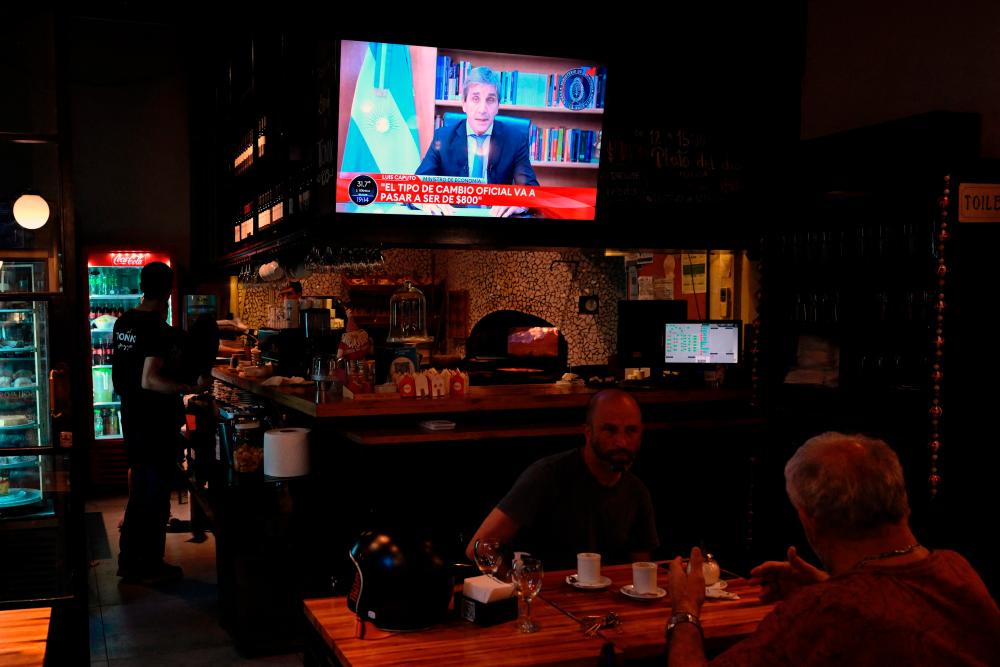BUENOS AIRES: Argentina will weaken its official peso exchange rate over 50% to 800 per dollar, cut energy subsidies, cancel tenders of public works and slash the size of government, the country's new economy minister Luis Caputo said on Tuesday (Dec 12), economic 'shock' therapy aimed at fixing its worst crisis in decades.
Caputo, in a much-awaited package of measures after the government of libertarian President Javier Milei took office on Sunday, said the plan would likely be painful in the short term but was needed to cut the fiscal deficit and bring down inflation.
“The objective is simply to avoid catastrophe and get the economy back on track,” Caputo said in a pre-recorded video.
The International Monetary Fund (IMF) welcomed the fresh slate of “bold” economic measures announced by Caputo.
“Decisive implementation will help stabilise the economy and set the basis for more sustainable and private-sector led growth,” the IMF, which has a US$44 billion (RM205.9 billion) programme with the embattled South American nation, said in a statement.
Argentina’s foreign exchange and grains markets had been locked down on Tuesday as traders awaited the new government’s economic plan. Banks had already anticipated a sharp devaluation, with some weakening their foreign exchange rate to 700.
Since 2019, the currency has been kept artificially strong by strict capital controls which create a wide gap between the official exchange rate of 366 per dollar and parallel rates as high as 1,000 per dollar.
“The situation is critical with 45% poverty and 200% annualised inflation,” presidential spokesperson Manuel Adorni earlier told a press conference. “We are heading towards hyperinflation and the objective is to avoid it.
Milei, a political outsider, had campaigned with pledges for major spending cuts, often wielding a chainsaw at rallies as a blunt symbol of his plans to trim back the state.
Caputo, echoing previous pledges by Milei, said the government would look to gradually erase export tariffs, something farmers have long sought. Argentina is a top exporter of processed soy oil and meal, and the third for corn.
The grains sector is expected to meet with the government late on Tuesday, Reuters reported earlier citing sources.
Milei’s tough fiscal rhetoric – with a new mantra “there is no money” – has buoyed markets since his election win, with the local S&P Merval stock index hitting a new record high on Tuesday and sovereign bonds up over 2%.
The key doubt is whether Milei, whose libertarian coalition is only the third largest bloc in Congress, can implement the sharp cuts needed to undo the deep fiscal deficit without pushing the South American country towards turmoil and unrest.
“The adjustment will be painful, and the path forward is laden with economic, political and social risks,” Fitch Ratings said in a report.
“Milei’s party has little representation in the legislature and controls no provincial governorships, alliances with more influential parties and power-brokers remain in flux, and the social situation is fragile.”
The central bank, which had new president Santiago Bausili confirmed overnight in the official gazette, said it would undo “transition” checks on forex trades from Wednesday morning that had only allowed priority trades through this week.
The presidential spokesperson also said on Tuesday that Milei had already started cutting the size of government, with the number of ministries halved to nine, as well as sharp reductions in the number of secretariats and departments. – Reuters









